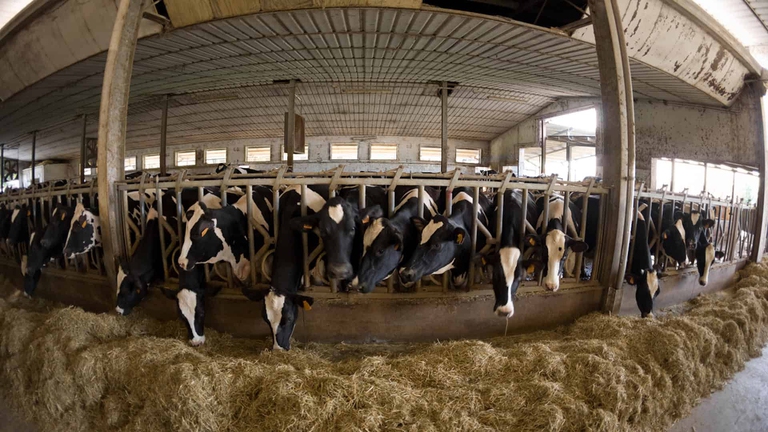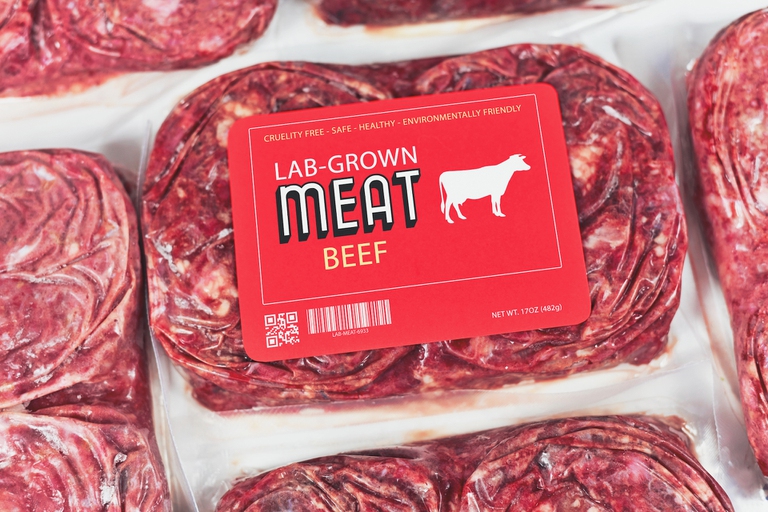https://www.lifegate.it/disinformazione-carne-clima
- |
On July 16, 2024 in Brussels, Italy it aligned to Hungary's position against i “novel foods”, a term that includes edible insects but also plant-based alternatives to meat.Yet, according to the European Commission, the consumption of alternatives to meat, dairy and fish products it has increased fivefold since 2011 and is expected to continue to grow.In 2022, a Boston Consulting Group survey of 31 countries found that a global average of 44 percent of consumers “were likely to eat less meat or replace it with alternatives to limit their burden on climate change.”Millennials are also more likely to try to avoid meat consumption and 22 percent of the world's population is already vegetarian.This is a direction that the meat and dairy industry doesn't like it:so the sector lobby took the field to correct the situation, through a massive work of disinformation.
This is discussed in the investigation “The new merchants of doubt”, published by the Changing Markets foundation and which analyzes how the large multinationals in the sector have derailed ten environmental policies of the European Green Deal and New Zealand's recently abolished agricultural emissions tax.And how they prevented the agricultural sector from taking responsibility for emissions within the Global methane pledge and of theInflation reduction act (IRA) of the United States, Joe Biden's flagship climate policy.

CO2 emissions from livestock must be halved
From a recent survey, conducted among over 200 climate scientists, it emerged that they believe that emissions from livestock will peak in middle-to-high income countries by 2025 and that these should be reduced by 50 percent globally by 2030.But despite their enormous negative impact on the climate, biodiversity and human health, large meat and dairy companies have largely been exempted when it comes to environmental regulation.The Changing Markets survey reveals that the industry has essentially succeeded in convincing politicians ofagricultural exceptionalism, obtaining a series of concessions, exemptions and postponements in the fight against climate change.At the European level, for example, a fundamental part of the Green deal was the strategy Farm to Fork (from producer to consumer), which promised to create a system of “green and healthy agriculture”, significantly reducing the use of pesticides and chemical fertilizers.Farm to Fork recognized that switching to a “higher plant-based diet with less red and processed meat” would reduce the environmental impact of the food system.For this reason, new laws and revisions of existing policies have been promised at European level but most of these have been decimated.Thanks to the meat and dairy industry lobby.
Some examples reported in the dossier:Copa-Cogeca, the largest trade association in the sector in Europe, has managed to eliminate the obligation to reduce agricultural emissions 30 percent from the long-term climate goal for 2040.Furthermore, twenty-two large meat and dairy companies have had over 600 high-level meetings with the European Commission since 2014 but only seven companies declared their lobbying commitments in the EU transparency register.Yet, the groups analyzed spend up to 11 million euros a year to put pressure on parliamentarians.Figures that represent only the tip of the iceberg of their actual influence:blocking actions aimed at reducing agricultural methane emissions is now another specific objective of these lobbyists.
That's why Changing Markets Foundation analyzed the systematic tactics used by major meat and dairy companies to distract, delay and sidetrack climate action.The report released in July is likely the largest investigation of its kind, given that It extends across four continents and examines the 22 major manufacturing companies worldwide, including Danish Crown, Tyson Foods, Jbs, Fonterra and Nestlé.

Misinformation about meat and dairy products runs rampant on social media
The survey shows how the large meat and dairy industry is particularly concerned about the younger generations, who consume less meat and dairy products than previous generations.For this reason, they target “Generation Z” with deceptive advertising campaigns on TikTok and Instagram, often making misleading claims, such as presenting meat and dairy as a healthy food choice for young consumers in countries that already have high consumption, such as the UK.Industry giants are supported by consultants and public relations agencies, including companies like Edelman, which has a known history of helping Big Oil and tobacco create persuasive narratives.
The investigation also brought to light various conflicts of interest, with politicians benefiting from the agricultural subsidies they are supposed to reform and “revolving doors” in which policy experts move from industry to public office and back again.One example is U.S. Secretary of Agriculture Tom Vilsack, who prior to his role served as president of the U.S. Dairy Export Council.
The case of Italy
The report contains a case study on Italy that focuses specifically on the country's recent ban on growing meat and restrictions in the labeling of plant products.In November 2023, Italy imposed a ban on the denomination of meat for processed products containing vegetable proteins – for example “vegan sausages” – and became the first (and only) European country to ban the cultured meat.
“In our Italian study, we identified some spikes of misinformation which seem strategic, synchronized with the confirmation of the ban on the production of cultured meat”, confirm the authors of the report.The 80 percent of the top “disinfluencers” (the report defines “disinfluencer” as any person, group, organization or entity that spreads misleading information, significantly influencing the beliefs and discussions of digital communities) who on was based in Italy but were instead based in the US, UK and Sweden, and predominantly posted in English.The posts were based on conspiracy theories such as the great reset, with statements on the "protection of tradition" and health, encouraging other countries to follow Italy's example in the "fight against the global elite".A third of these disinfluencers were openly like-minded far-right ideologies.Among them, the report cites Bev Turner, Emerald Robinson, Peter Immanuelsen and Dr. Anastasia Loupis.
The president of the council Giorgia Meloni she appeared several times in disinformation posts, defined as the heroine of the protection of traditions and opposition to "globalist programs".On the other hand, Italy puts pressure on the European Union to scale back its green policies and has regularly abstained or voted against several proposals in this sense:Italy was one of eight countries that withdrew their support for the Nature restoration law, on the restoration of degraded areas.Luckily, the law was approved definitively by the European Parliament, where however there is still no shortage of parliamentarians who support the proposals of the meat and dairy lobby:some of these were also "told" by the documentary “Food for profit” by Giulia Innocenzi, including the parliamentarian Paolo De Castro (now resigned) or the lobby group European livestock voice (Elv), which is also accused of having contributed to derailing a European law proposal to improve the welfare of hundreds of millions of animals in Europe and put an end to cage farming.
